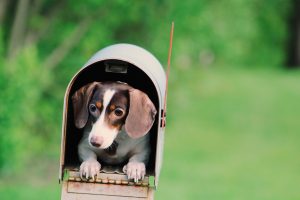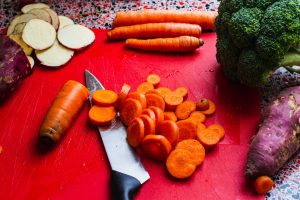Pomeranian Nutrition: What to Feed Your Furry Friend
Discover the ultimate guide to Pomeranian nutrition in our latest blog post. Find out what to feed your furry friend for optimal health and happiness.

Understanding Your Pomeranian’s Dietary Needs
Pomeranians, like all dogs, have specific dietary needs that must be met in order for them to thrive and lead healthy lives. Understanding these needs is crucial for any Pomeranian owner. One important aspect of their diet is the need for a balanced mix of proteins, carbohydrates, and fats. These macronutrients provide the energy and building blocks necessary for proper growth and development.
Additionally, Pomeranians require essential vitamins and minerals to support their overall health. For example, vitamin A promotes good vision while calcium helps maintain strong bones and teeth. It’s important to ensure that your Pomeranian’s food contains adequate amounts of these nutrients to prevent deficiencies or imbalances.
Furthermore, it’s worth noting that the size of your Pomeranian may influence its dietary requirements. Smaller breeds often have higher metabolic rates compared to larger breeds, meaning they may need more frequent meals with smaller portion sizes throughout the day. This can help prevent issues such as hypoglycaemia or obesity.
By understanding your Pomeranian’s specific dietary needs and providing them with a well-balanced diet tailored to their size and age, you can ensure they receive optimal nutrition for a happy and healthy life. Remember to consult with your veterinarian if you have any concerns or questions about meeting your Pomeranian’s nutritional requirements – they will be able to provide personalized advice based on your dog’s individual needs.
The Importance of a Balanced Diet for Pomeranians
Pomeranians, like all dogs, require a balanced diet to maintain their overall health and well-being. A balanced diet ensures that your Pomeranian receives the necessary nutrients, vitamins, and minerals needed for optimal growth and development. Without a proper balance of nutrients in their diet, Pomeranians may experience deficiencies or imbalances that can lead to various health issues.
A balanced diet for Pomeranians should consist of high-quality protein sources such as lean meats or fish. Protein is essential for muscle development and repair in dogs. Additionally, carbohydrates from whole grains provide energy while fibre aids in digestion. Fruits and vegetables are also important components as they provide essential vitamins and antioxidants.
It is crucial to avoid feeding your Pomeranian foods that are high in fat or contain artificial additives. These can contribute to weight gain and digestive problems. Instead, opt for dog food options that are specifically formulated for small breeds like Pomeranians. Reading labels carefully will help you identify products with quality ingredients suitable for your furry friend’s needs.
Identifying High-Quality Dog Food Options for Pomeranians
High-quality dog food is essential for maintaining the health and well-being of your Pomeranian. When choosing a dog food option, it’s important to consider several factors. Firstly, look for a brand that uses real meat as the main ingredient. Pomeranians are carnivores by nature, so their diet should primarily consist of animal protein.
Additionally, opt for dog foods that are free from artificial additives and preservatives. These chemicals can be harmful to your Pomeranian’s digestive system and overall health. Look for options that use natural preservatives like vitamin E or rosemary extract instead.
Lastly, consider the specific needs of your Pomeranian when selecting a dog food option. Some Pomeranians may have allergies or sensitivities to certain ingredients such as grains or poultry. In these cases, choose a limited ingredient formula that avoids potential allergens.
By following these guidelines and carefully reading labels, you can ensure you’re providing your beloved Pomeranian with high-quality nutrition tailored to their unique needs without any unnecessary fillers or harmful ingredients present in their diet.
Homemade Dog Food Recipes for Pomeranians
Pomeranians can greatly benefit from a balanced homemade diet that provides them with all the essential nutrients they need. One easy recipe to try is a combination of lean protein, such as chicken or turkey, cooked with brown rice and mixed vegetables like carrots and peas. This recipe offers a good balance of proteins, carbohydrates, and vitamins for your Pomeranian’s overall health.
Another homemade dog food option for Pomeranians is a mix of ground beef or lamb cooked with sweet potatoes and green beans. These ingredients provide ample amounts of protein, fibre, and antioxidants that support their immune system. It’s important to cook the meat thoroughly to avoid any bacterial contamination.
For variety in your Pomeranian’s diet, you can also prepare a fish-based meal by steaming salmon or whitefish and mixing it with quinoa or barley along with spinach or kale. Fish is an excellent source of omega-3 fatty acids which promote healthy skin and coat in dogs.
Remember to consult your veterinarian before transitioning your Pomeranian onto a homemade diet as they can guide you on portion sizes specific to your dog’s needs. Additionally, it’s crucial to introduce new foods gradually while monitoring for any signs of allergies or digestive issues. By providing nutritious homemade meals tailored specifically for your Pomeranian, you can ensure their well-being through proper nutrition.
Incorporating Essential Nutrients into Your Pomeranian’s Diet
To ensure that your Pomeranian receives a well-rounded diet, it is crucial to incorporate essential nutrients into their meals. One of the most important nutrients for Pomeranians is protein. This can be sourced from high-quality animal proteins such as chicken, turkey, or fish. Protein helps support muscle development and repair, keeping your Pomeranian strong and active.
In addition to protein, healthy fats are also essential for your Pomeranian’s diet. These fats provide energy and help maintain a shiny coat and healthy skin. Good sources of healthy fats include salmon oil or coconut oil, which can be added in small amounts to their food.
Another vital nutrient for your Pomeranian is fibre. Fibre aids in digestion and promotes regular bowel movements. You can incorporate fibre into their diet by including vegetables like carrots or green beans in their meals or adding a small amount of pumpkin puree.
By incorporating these essential nutrients – protein, healthy fats, and fibre – into your Pomeranian’s diet on a daily basis, you will help ensure they receive the necessary nutrition for optimal health and wellbeing.
Avoiding Harmful Ingredients in Pomeranian Food
Pomeranians are small and delicate dogs, making it crucial to be mindful of the ingredients in their food. Certain ingredients can have adverse effects on their health, so it’s important to avoid them when selecting dog food for your Pomeranian.
One harmful ingredient to watch out for is artificial preservatives. These additives, such as BHA, BHT, and ethoxyquin, are commonly used in commercial dog foods to extend shelf life but have been linked to various health issues including cancer and allergies. Opting for natural preservatives like vitamin E or rosemary extract is a safer choice for your Pomeranian.
Another ingredient that should be avoided is excessive amounts of salt. While some amount of sodium is necessary for a balanced diet, too much can lead to dehydration and kidney problems in Pomeranians. Reading the labels carefully and choosing low-sodium options will help ensure your furry friend’s well-being.
Additionally, steer clear of foods containing artificial flavours and colours. These additives may make the food more appealing visually or taste-wise but offer no nutritional value and can potentially cause digestive issues or allergic reactions in Pomeranians. Choosing dog foods with natural flavourings derived from real meat sources is a healthier alternative.
By being aware of these harmful ingredients and reading labels diligently when purchasing dog food for your Pomeranian, you can provide them with a safe and nutritious diet that supports their overall well-being without compromising their health.
Managing Portion Sizes and Feeding Frequency for Pomeranians
To ensure your Pomeranian maintains a healthy weight and receives the proper nutrition, it is crucial to manage portion sizes and feeding frequency. Pomeranians have small stomachs, so it’s important not to overfeed them. Start by following the guidelines on the dog food packaging for recommended portion sizes based on your Pomeranian’s weight.
Divide their daily food intake into two or three meals throughout the day. This helps prevent overeating and reduces the risk of digestive issues like bloating or gastric torsion. Feeding smaller portions more frequently also provides a steady supply of energy for your active little companion.
Keep in mind that every Pomeranian is unique, so adjust their portion sizes according to their activity level, age, metabolism, and overall health condition. Monitor their body condition regularly by feeling their ribs – you should be able to feel them without excess fat covering them but they shouldn’t be too prominent either.
By managing portion sizes and feeding frequency properly, you can help maintain your Pomeranian’s ideal weight while ensuring they receive adequate nutrition for optimal health and vitality. Remember to consult with your veterinarian if you have any concerns or questions about managing your Pomeranian’s diet effectively.
Addressing Common Pomeranian Dietary Issues and Allergies
Pomeranians, like any other breed of dog, can experience dietary issues and allergies that may require special attention. One common issue is food sensitivities or allergies. Some Pomeranians may be allergic to certain ingredients in their food, such as grains or proteins like chicken or beef. If you suspect your Pomeranian has a food allergy, it’s important to consult with your veterinarian for proper diagnosis and guidance.
Another common dietary issue in Pomeranians is obesity. These small dogs are prone to weight gain if they consume more calories than they burn off through exercise. It’s essential to monitor their portion sizes and feeding frequency carefully. Avoid overfeeding them with treats or table scraps, as this can contribute to weight gain and related health problems.
Additionally, dental health is an important aspect of a Pomeranian’s overall well-being. Dental issues can arise from poor oral hygiene or consuming inappropriate foods that lead to plaque build-up and tooth decay. Regular brushing of teeth and providing appropriate chew toys can help maintain good dental health.
By understanding these common dietary issues faced by Pomeranians, you can make informed choices about their nutrition needs. Remember to consult with your veterinarian for personalized advice on addressing specific concerns regarding your furry companion’s diet and allergies without delay
The Role of Supplements in Pomeranian Nutrition
Supplements can play a vital role in supporting the overall nutrition of your Pomeranian. While a balanced diet should always be the foundation, certain supplements can provide additional benefits for their health. One commonly used supplement is fish oil, which contains omega-3 fatty acids that promote healthy skin and coat. These fatty acids also have anti-inflammatory properties, helping to reduce joint pain and improve heart health.
Another important supplement to consider is probiotics. Probiotics are beneficial bacteria that support digestive health by maintaining a healthy balance of gut flora. They can help prevent issues such as diarrhoea or constipation in Pomeranians, while also boosting their immune system.
Additionally, joint supplements like glucosamine and chondroitin can be beneficial for Pomeranians prone to joint problems or arthritis. These supplements help maintain the integrity of cartilage and reduce inflammation in joints, improving mobility and comfort for your furry friend.
Remember, before adding any supplements to your Pomeranian’s diet, it’s crucial to consult with your veterinarian first. They will be able to recommend specific supplements based on your dog’s individual needs and ensure they are safe and appropriate for them.
By incorporating these carefully selected supplements into your Pomeranian’s nutrition plan under veterinary guidance, you can enhance their overall well-being and keep them happy and healthy for years to come without relying solely on commercial dog food options available in the market.
Consulting with a Veterinarian for Personalized Pomeranian Nutrition Advice
Consulting with a veterinarian is crucial when it comes to providing personalized nutrition advice for your Pomeranian. These professionals have the knowledge and expertise to assess your dog’s specific dietary needs and make recommendations based on their individual health requirements. By seeking their guidance, you can ensure that your Pomeranian receives the proper nutrients they need to thrive.
During a consultation, the veterinarian will take into account factors such as age, weight, activity level, and any existing medical conditions or allergies that may affect your Pomeranian’s diet. They will also consider the nutritional content of different food options available in order to recommend the best choices for your furry friend. Additionally, they can provide guidance on portion sizes and feeding frequency tailored specifically for your Pomeranian.
In addition to offering advice on commercial dog food options, veterinarians can also assist with homemade diets if preferred. They can help formulate recipes that include essential nutrients while avoiding harmful ingredients or potential allergens. However, it’s important to note that homemade diets require careful planning and monitoring by a professional due to the risk of nutrient deficiencies or imbalances.
By consulting with a veterinarian for personalized nutrition advice for your Pomeranian, you are taking an important step towards ensuring their overall health and well-being. With their expert guidance, you can feel confident in providing a balanced diet that meets all of your pet’s unique nutritional needs throughout every stage of life.








